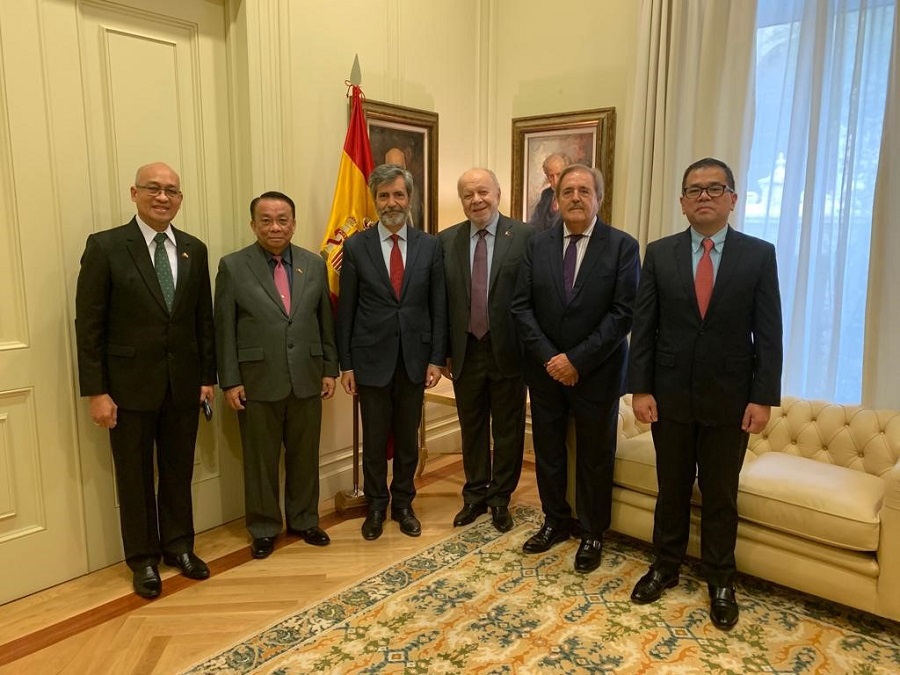
A high-level justice and law enforcement delegation from the Philippines visited Madrid from 16 to 22 September 2019 on an official visit to study Spain’s justice system. The 16-member delegation was led by Chief Justice Lucas P. Bersamin; DILG Undersecretary for Peace and Order, Mr. Bernardo Florece, Jr.; and DOJ Undersecretary for Law Enforcement, Mr. Adrian Ferdinand Sugay.
During their visit, the delegation attended several briefings at various Spanish government institutions concerning the workings of the country’s justice system, which highlighted its decentralized structure and the division of powers and responsibilities among the numerous agencies involved in law enforcement and justice administration.
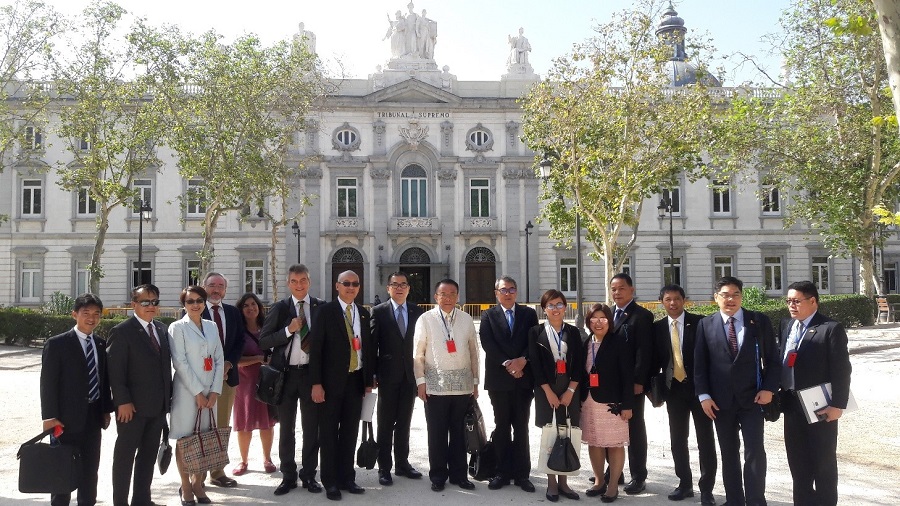
The Philippine officials were received by senior officials from the Spanish judiciary, led by Acting Chief Justice Carlos Lesmes Serrano, who heads both the Spanish Tribunal Supremo (Supreme Court) and the Consejo General del Poder Judicial (General Council of the Judiciary). The latter agency is responsible for selecting, training, promoting, and providing posts for Spanish judges.
This meeting was followed by a visit to the Fiscalía General del Estado (State Attorney-General), where they met with Mr. Francisco Moreno Carrasco, chief prosecutor and head of the Support Unit.
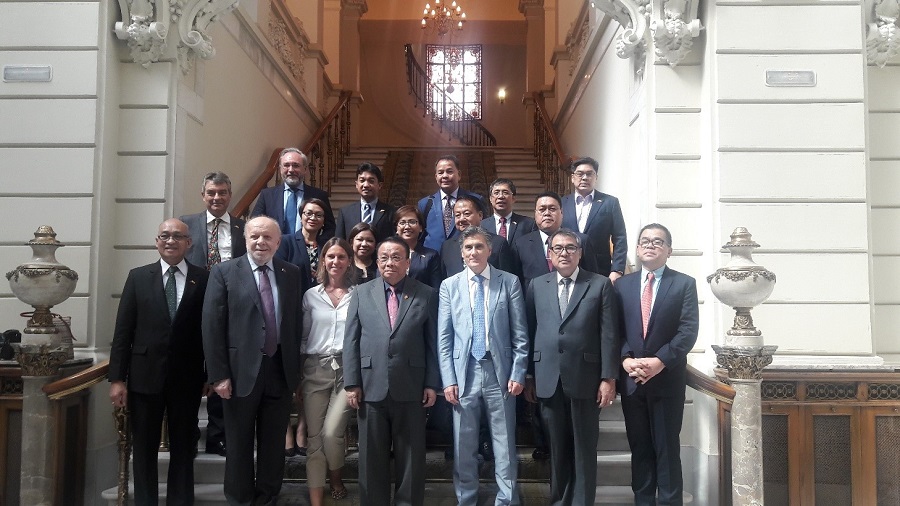
The delegation’s itinerary also included a call on the Spanish Ministry of Justice, where they were received by Secretary-General Antonio Viejo Llorente. They were then briefed about the on-going organizational and technological reform of Spain’s judicial system, which aims to transform all procedures into digital, paperless transactions that citizens and legal workers may complete online.
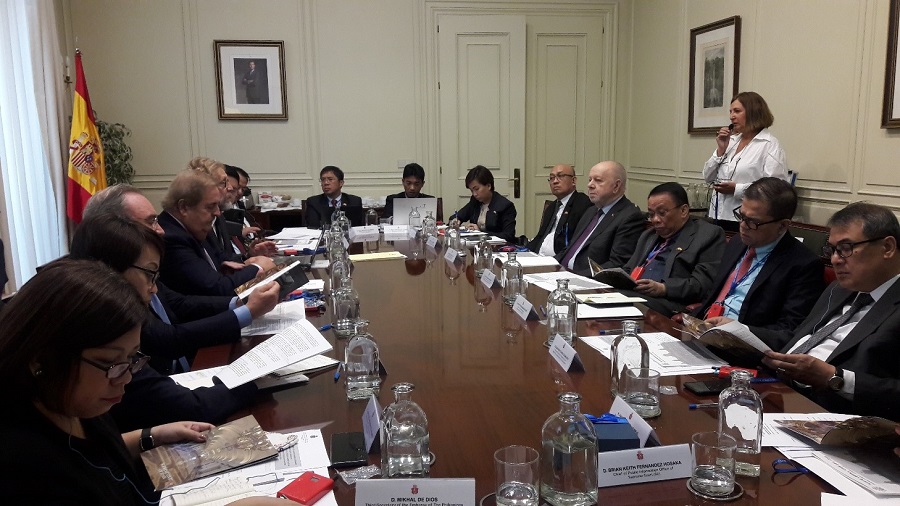
The visiting officials also met with Mr. José Ramón Navarro Miranda, President of the Audiencia Nacional (National High Court). The High Court, which has no equivalent in the Philippine judicial system, was founded with the primary objective of combating crimes that cross Spain’s regional borders, such as terrorism, organized crime, and economic crimes; as well as crimes that affect the state and royalty.
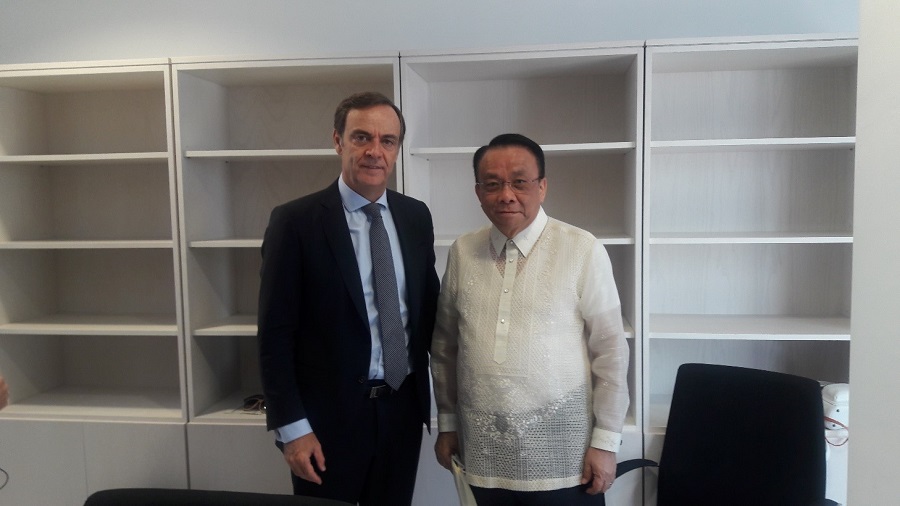
Lastly, the delegation visited two of Spain’s most prominent law enforcement institutions, the Policía Nacional (National Police) and Guardia Civil (Civil Guard). The Policía Nacional is the national civilian police force of Spain and is primarily responsible for policing urban areas. The Guardia Civil, meanwhile, is a military force charged with police duties and is tasked with national border and coastal patrol and securing Spain’s highways and rural areas. The Policía Nacional and Guardia Civil share duties in counterterrorism operations, fraud and corruption investigations, intelligence, public security, border control and investigation, forensic policing, and more.
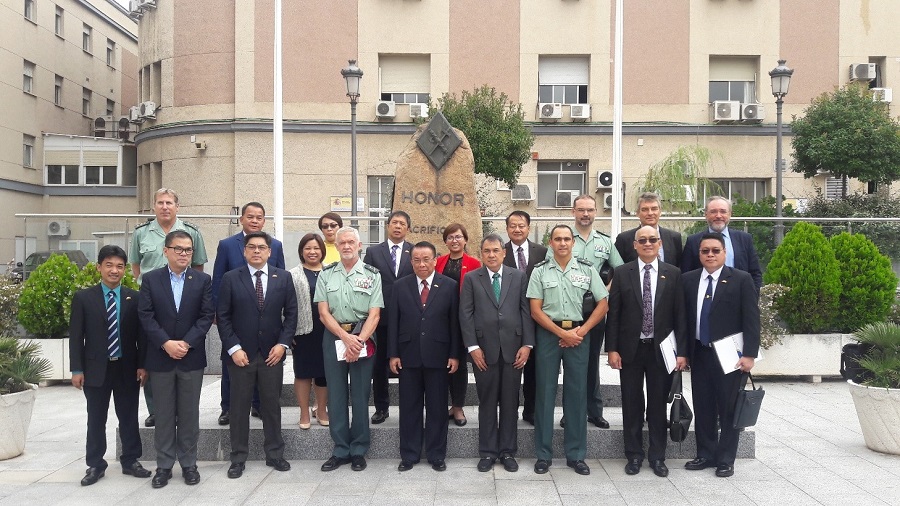
The visit was funded and organized under the Governance in Justice (GOJUST) Programme of the Philippines and the European Union. Throughout the visit, the delegation was supported by the Philippine Embassy in Madrid, under Ambassador Philippe J. Lhuillier.
